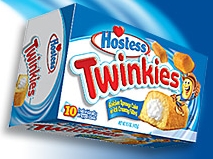Decision in domain dispute favorable to non-use of domains for bad faith argument.

needed in domain dispute.
Hostess, the bakery that sells treats such as Twinkies and Ding Dongs, has lost a domain dispute over Hostess.com.
The domain name was purchased at the TRAFFIC auction in New York in 2007 for $44,000 and hasn’t been used since then. That proved to be a problem for Hostess, since the panel was not persuaded the domain was registered in bad faith given no evidence.
The panel wrote:
…Although the Domain Name is identical to Complainant’s well-known trademark, Respondent is correct when it emphasizes that “hostess†is also a common word subject to substantial third-party use. Without any further evidence of specifically targeting Complainant and its trademarks, or use of the Domain Name in a manner that supports a finding of seeking to profit from Complainant’s mark, this Panel cannot, on the balance of the probabilities, adopt the inferences which Complainant urges.
As for Complainant’s argument that Respondent’s prior use of the Domain Name was intended for commercial gain to the extent that Respondent hoped to divert Internet users seeking information about Complainant’s products to Respondent’s own website, Complainant has provided no evidence that Respondent has used the Domain Name in this way. Indeed, Respondent has emphasized that there is no allegation that Respondent has ever used the Domain Name in connection with the goods and services covered by Complainant’s trademarks.
In other words, had the domain name been parked with ads for food, Hostess probably would have won the dispute. A number of rogue panels have decided that non-use is a sign of bad faith, so it’s comforting to see this outcome.






A1 logical result. If only a reverse hijacking finding would have been announced. And I say that because Hostess’ UDRP representative should have known that no infringement had actually occurred, and thus no real cause on which to proceed.
So they decided to roll the dice with someone else’s property. Greedy.
Hallelujah! A fair and even-handed decision from a UDRP panelist.
If only the UDRP process were defined so it didn’t burden hapless domain owners with $10,000 of legal expenses.
yeah sure… ya’ll keep getting cute with well established corporate identities like this one you will soon learn the wrath of the lobbying industry as they turn their sites on yours, if any one thinks that they are going to disrupt business in this manner?
yer nuts.
Ironically their non-use of Hostess.com results in ads for Hostess Twinkies for me since I’m using Verizon for my DSL.
Since, the dns is not resolving, when I type hostess.com into my url bar it displays google searches for – hostess.
If anything, Google is the one infringing on hostess cakes since they are selling advertising. But, that is a different argument.
Does Domain Capital own the domain or holding a lien on the domain by controlling the whois?
@ Domain Investor – its just one of Domain Capital’s customers.